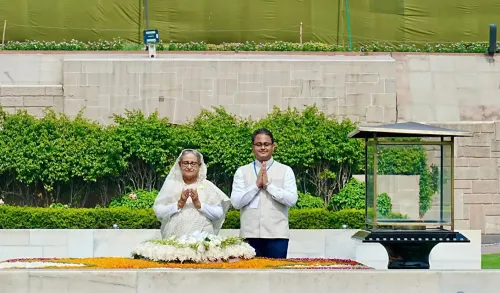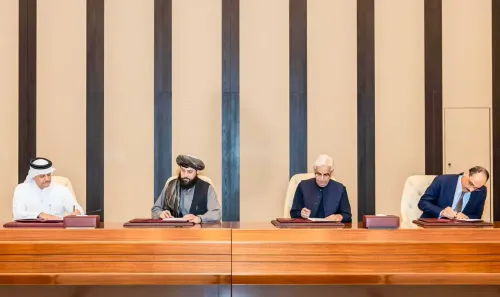Is Pakistan's Democracy Under Threat from Military Overreach?

Synopsis
Key Takeaways
- 27th Constitutional Amendment consolidates military power.
- Judicial independence is compromised with the establishment of a Federal Constitutional Court.
- The amendment risks unchecked foreign policy actions.
- Regional stability may be threatened by escalating insurgencies.
- Civilian governance is at risk of becoming a facade for military authority.
Islamabad, Nov 18 (NationPress) Pakistan is on the verge of entering a "constitutional barracks" phase if the 27th Constitutional Amendment establishes a precedent, allowing military authority to overshadow electoral processes and operate independently. Such developments — increased oppression, diminished accountability, and exacerbated regional divides — are poised to profoundly impact Pakistan’s political environment for the foreseeable future, a recent report revealed.
According to the report from ‘One World Outlook,’ Pakistan is familiar with military involvement in governance, yet the 27th Amendment signifies a troubling new chapter in the nation’s democratic decline. This amendment consolidates military and executive power within a singular office while manipulating the judiciary and undermining federal structures. It emerges during a time when major opposition factions have been dismantled, key leaders are imprisoned, and media freedoms have been stifled.
The report outlines that the 27th Constitutional Amendment fundamentally alters the distribution of power, promoting General Asim Munir, the Chief of the Army, to the newly established role of Chief of Defence Forces (CDF), thereby unifying command over the army, navy, and air force.
“The CDF is granted a lifetime rank, privileges, and legal immunity from prosecution — a drastic shift away from norms of democratic accountability. Concurrently, the amendment disbands the Joint Chiefs of Staff Committee and restructures revenue-sharing to limit provincial financial autonomy,” the report stated.
“Additionally alarming is the overhaul of the judicial framework, where the Supreme Court is excluded from constitutional matters, transferring jurisdiction to a newly formed Federal Constitutional Court, with judges appointed by the executive. This accelerates a system where the highest authorities—the CDF and this new court—are accountable not to the populace or parliament, but rather to the prime minister and a closely-knit executive-military alliance,” it continued.
The report underscores that this consolidation of decision-making authority heightens the risk of unrestrained foreign policy actions at a time when Pakistan faces both internal and external security dilemmas.
“Major regional issues now include nuclear command centralized in one individual, increasing concerns over hasty crisis-driven decisions, and diminishing opportunities for multilateral conflict resolution. Domestically, while dissent is quelled, insurgencies in Balochistan and Khyber Pakhtunkhwa are likely to escalate, threatening state stability with potential repercussions for neighboring Afghanistan,” it warned.
Veteran Pakistani diplomats, such as Ashraf Jehangir Qazi, have cautioned that the amendment “damages, even obliterates, the foundational framework of Pakistan’s constitution,” effectively reducing civilian governance to a mere facade of military control.
“Critics deem this a ‘constitutionalization of militarization,’ contending that once such systems entrench themselves, dismantling them becomes nearly impossible,” the report concluded.









